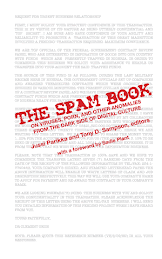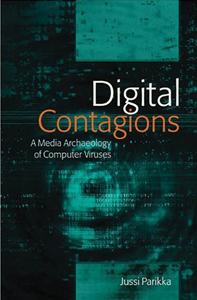Our network politics networking-project kicks off officially October 1st, and we are in the midst of organizing some of the activities and themes which will form the backbone of the project. The project will feature both online-presence and activities, as well as events taking place in Cambridge and New York. We had yesterday the interesting idea of using the Request for Comments-format (RFC) as a media theoretical method of sorts, that kicks off from the initial question of "what is network politics?" and then proceeds through the RFC method - forking into new questions, streams, agendas. As the project is about networking, we find its important to map the field and crucial agendas, not just yet hope to provide final solutions. This is why the RFC idea (to quote from Wikipedia!) is intriguing: "Through the Internet Society, engineers and computer scientists may publish discourse in the form of an RFC, either for peer review or simply to convey new concepts, information, or (occasionally) engineering humor. The IETF adopts some of the proposals published as RFCs as Internet Standards." To adopt that to media theoretical and practical aims to facilitate discussion is an idea worthwhile to have a shot at, and to use it to develop concept-labs/networks for conveying new concepts, information...
Anyhow, I need to start writing some notes to self in terms of possible ways to go with the agenda, of what could be relevant in terms of topics to be covered somehow:
- politics of new networks and code platforms such as Twitter. E.g. Greg Elmer has been actively involved in this research. What kind of modes of organization, action and for example campaigning for political agencies such forms offer? This stream perhaps focuses on the question of how such technologies might deterritorialize the political landscape and praxis.
- Politics of networks as politics of invisibility: what kinds of forms of politics there are out there that are not even recognized as politics? This is a multilayered question, and relates both to perception of politics as well as the tactics of politics in the age of surveillance, visibility and software. Firstly, how should we address certain forms of tactical media, net art, etc. as forms of politics (and what are the tools to develop such understanding). Secondly, take Galloway and Thacker: "Future avant-garde practices will be those of nonexistence." Network politics can take as its form also becoming-invisible, becoming-nonexistent in order to avoid both the politics of representation as well as the techniques of trackings, surveillance and control. All of this relates to thinking of modes of activism, as well.
- Biopolitics of network culture that is characterized by "immaterial projects, including ideas, images, affects and relationships" (Hardt and Negri); how do such forms of production take form through social media as a standardisation and distribution of specific forms of relations, sociability, affects, and community? There is a wide range of excellent work already on this stream, from Tiziana Terranova's Network Culture-book (2004) to the forthcoming The Internet as Playground and Factory-conference in New York. (For a taste of what's coming, see e.g. McKenzie Wark's video interview on the topic.)
- The need for new tools for academic interaction -- tools which do not only quantifiably ease distribution and storage of research etc., but qualitatively enact a change in how academic institutions work in the age of late capitalism. Gary Hall's Digitize This Book! is a good point of entry to these debates, and what we hope to address somehow (e.g. through methods such as RFC potentially) is how the modes of relating to other scholars and production of information can be rethought in the context of network culture. Taking aboard Jodi Dean's excellent "warnings" in her "Communicative Capitalism"-article, this mode of academic interaction should not fall prey to any automated sociability that is offered as part of the assumption of goodness of all communication in network culture, but it should critically inspect ideas of open source, multimodal forms of academic debate and possibilities of network technologies to facilitate not just more-of-the-same but visions of 21st century arts and humanities agenda (which are not detached from science and tech.)
Wednesday, 23 September 2009
On Network Politics -- notes to self and the unknown reader
Labels:
academic research,
biopolitics,
network politics,
social media
Subscribe to:
Post Comments (Atom)








No comments:
Post a Comment